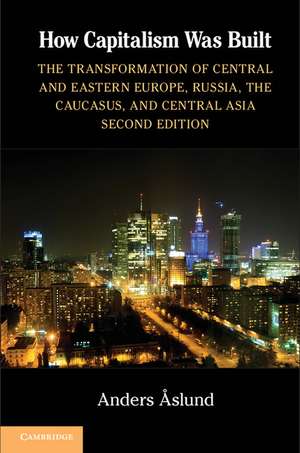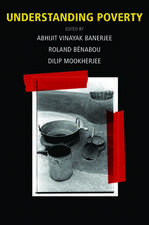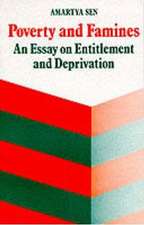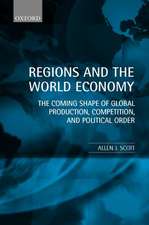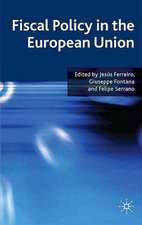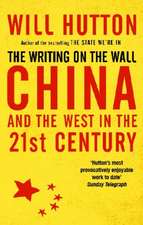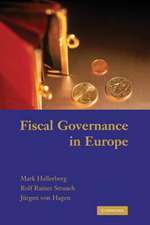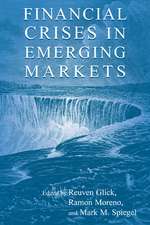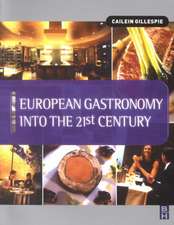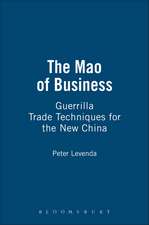How Capitalism Was Built: The Transformation of Central and Eastern Europe, Russia, the Caucasus, and Central Asia
Autor Anders Aslunden Limba Engleză Paperback – 11 noi 2012
| Toate formatele și edițiile | Preț | Express |
|---|---|---|
| Paperback (1) | 355.39 lei 6-8 săpt. | |
| Cambridge University Press – 11 noi 2012 | 355.39 lei 6-8 săpt. | |
| Hardback (1) | 893.19 lei 6-8 săpt. | |
| Cambridge University Press – 11 noi 2012 | 893.19 lei 6-8 săpt. |
Preț: 355.39 lei
Nou
Puncte Express: 533
Preț estimativ în valută:
68.03€ • 73.92$ • 57.18£
68.03€ • 73.92$ • 57.18£
Carte tipărită la comandă
Livrare economică 22 aprilie-06 mai
Preluare comenzi: 021 569.72.76
Specificații
ISBN-13: 9781107628182
ISBN-10: 1107628180
Pagini: 440
Ilustrații: 45 b/w illus. 7 tables
Dimensiuni: 152 x 229 x 30 mm
Greutate: 0.57 kg
Ediția:Secondtion
Editura: Cambridge University Press
Colecția Cambridge University Press
Locul publicării:New York, United States
ISBN-10: 1107628180
Pagini: 440
Ilustrații: 45 b/w illus. 7 tables
Dimensiuni: 152 x 229 x 30 mm
Greutate: 0.57 kg
Ediția:Secondtion
Editura: Cambridge University Press
Colecția Cambridge University Press
Locul publicării:New York, United States
Cuprins
Introduction: a world transformed; 1. Communism and its demise; 2. Radical reform versus gradualism; 3. Output: from slump to recovery and boom; 4. Liberalization: the creation of a market economy; 5. From hyperinflation to financial stability; 6. Privatization: the establishment of private property rights; 7. The social system; 8. The politics of transition; 9. From crime toward law; 10. The importance of the European Union; 11. The global financial crisis, 2007–12; Conclusions: a world transformed.
Recenzii
'How Capitalism Was Built is an impressive achievement. It deals with all the important aspects of one of the most important transformations in modern history. It is based on a massive empirical literature and - what's rare - on an author's firsthand knowledge of the transition countries. It should be read by everybody interested in modern history, politics, and economics.' Leszek Balcerowicz, College of Europe and Former Chairman, National Bank of Poland
'This book is a heroic attempt to cover the whole of transition from the former Soviet Union and Central, Eastern, and Southern Europe to the Baltics. Anders Åslund is able to cover this vast territory in a substantive way by grouping the transition experiences in a clear and logical manner. It is a timely publication.' Paul Gregory, University of Houston
'Anders Åslund has followed post-communist transitions from the outset, and he has got it right. Few economists have seriously studied the transformation of post-communist economies, or more poetically, how aquaria have been restored from fish soup. Åslund has. One of his main conclusions is that early, comprehensive, and radical market economic reforms worked best, and as he rightly points out, Estonia is the best proof that such policies work.' Toomas Hendrik Ilves, President of the Republic of Estonia
'Anders Åslund has repeatedly challenged conventional wisdom. He was right about Gorbachev's reforms, right about Yeltsin, and right about the more recent resurgence of Russia. Anyone who cares about the former Soviet Union, emerging markets, global energy security, and the progress of democracy ignores Åslund and this book at their own peril.' Simon Johnson, Massachusetts Institute of Technology
'For more than twenty years, Anders Åslund has been the most perceptive and knowledgeable chronicler of the creation of capitalism in Eastern Europe and the former Soviet Union. His excellent judgment and wisdom shine through every page of this volume.' Andrei Shleifer, Harvard University
'Anders Åslund is the world's keenest observer of what used to be called 'transition economies'. Everyone concerned with the historical lesson these economies provide or their future should read this important book.' Lawrence Summers, Former US Secretary of the Treasury and Former President, Harvard University
'This book is a heroic attempt to cover the whole of transition from the former Soviet Union and Central, Eastern, and Southern Europe to the Baltics. Anders Åslund is able to cover this vast territory in a substantive way by grouping the transition experiences in a clear and logical manner. It is a timely publication.' Paul Gregory, University of Houston
'Anders Åslund has followed post-communist transitions from the outset, and he has got it right. Few economists have seriously studied the transformation of post-communist economies, or more poetically, how aquaria have been restored from fish soup. Åslund has. One of his main conclusions is that early, comprehensive, and radical market economic reforms worked best, and as he rightly points out, Estonia is the best proof that such policies work.' Toomas Hendrik Ilves, President of the Republic of Estonia
'Anders Åslund has repeatedly challenged conventional wisdom. He was right about Gorbachev's reforms, right about Yeltsin, and right about the more recent resurgence of Russia. Anyone who cares about the former Soviet Union, emerging markets, global energy security, and the progress of democracy ignores Åslund and this book at their own peril.' Simon Johnson, Massachusetts Institute of Technology
'For more than twenty years, Anders Åslund has been the most perceptive and knowledgeable chronicler of the creation of capitalism in Eastern Europe and the former Soviet Union. His excellent judgment and wisdom shine through every page of this volume.' Andrei Shleifer, Harvard University
'Anders Åslund is the world's keenest observer of what used to be called 'transition economies'. Everyone concerned with the historical lesson these economies provide or their future should read this important book.' Lawrence Summers, Former US Secretary of the Treasury and Former President, Harvard University
Notă biografică
Descriere
This second edition updates all chapters and covers the impacts of the global financial crisis and the European Union.
